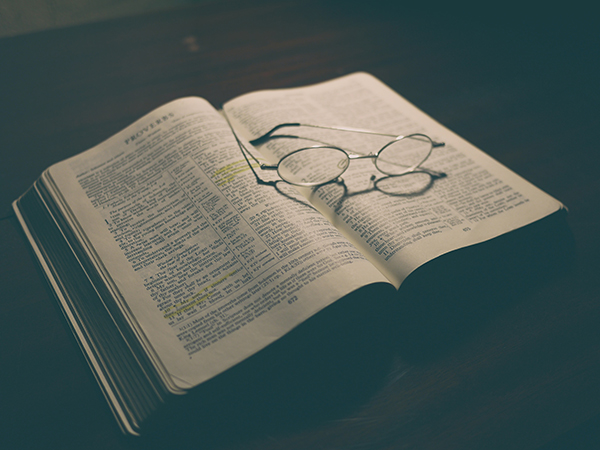
As we continue in our study of the Book of Proverbs together this Sunday, I wish to teach you a new word: Paremiologist. You and I are not Proverbians or Proverbers. You and I are paremiologists. Paremiology is the study of proverbs and a paremiologist is someone who dedicates himself to the study of proverbs. There, my work is done here. Please don’t be impressed. I just learned it recently myself.
What would you say about the Book of Proverbs? If someone on the street asked you what does the Book of Proverbs contain, how would you answer? While many questions can be asked and answered about the biblical book of Proverbs, pinpointing the exact definition what is a proverb can be challenging. The Bible refers to proverbs as “sayings of the wise” (Proverbs 24:23) and “the words of the wise and their riddles” (Proverbs 1:6). For me, when I think of proverbs, I look at them as wisdom teachings that came out of King Solomon’s (and Agur’s and King Lemuel’s) own lifelong observations.
Somewhere I found a definition of a biblical proverb that I liked. It said that a proverb is “a short saying that expresses a general truth for practical, godly living.” The word “general” caught my eye. If you recall, when Billy launched this message series, he explained to us while Proverbs is wisdom literature for practical, godly living, they are not to be taken as promises. They are general truths, and not absolute rules. For example, Proverbs 6:10–11 says,
“A little sleep, a little slumber,
A little folding of the hands to rest”—
Your poverty will come in like a vagabond
And your need like an armed man.
(NASB1995)
It is generally true that because a sluggard is lazy, he works less hard than another man, and he will become poor and not have enough to provide for his needs and the needs of his family. But not always. A sluggard can still provide for himself and his family even though he is lazy, perhaps because of inheritance, or a compassionate or generous family member or friend. Cases like this, however, are rare. They are the exception, and not the rule. In “general,” a lazy person has a higher probability of shipwrecking his financial life than someone who is not. In “general,” the Proverbs offer practical truths that are spot on for living a good life.
If this is the case, then how should we, as paremiologists, read the Proverbs? What I meant to ask is, after we read the Proverbs, where do we go from there? How much or how little should we apply the Book of Proverbs to our lives?
Number one. If the Proverbs are not promises, then let us not read them as promises. Taking the Proverbs as promises is not wise, and dangerous. If we did what a proverb says but things didn’t happen according to what the proverb says would happen, we must not automatically start beating ourselves up. If we trained up our child in the way he should go, and when he grew up, he departed from it, we must not think right away we never did train up our child in the way he should go. Worse yet, we must not blame God, and say he gave us a book that is unreliable, or that he is a liar. Reading the Proverbs as promises can lead to catastrophic consequences.
Number two. Even though the Proverbs are not promises, it is still right for us to read them, and live by them. The Proverbs are what God intended for us to know and obey in our life. It makes no sense for God to include the Book of Proverbs in our Bibles, but we may choose to obey or not obey, whatever we like to do. God commands us to obey the Proverbs, all of them. Again, in general, the Proverbs are true. When we obey and do the things we are supposed to do, and turn away from doing the things we are not supposed to do, our lives will improve.
Number three. Pray. Let us pray for God to keep us faithful, and read the Book of Proverbs. Something happens to us when we read the Proverbs, and live our lives by them. Do not be discouraged if we failed to see the results we had hoped. Let’s not get tired of doing the right thing.
God is sovereign. We are responsible to God how we train our children. But we are not and should not be responsible whether or not they decide to stay in the way they should go. We may not like it this way, and I get it. But it is true. Our job is to do what God says, and trust him with the results. Our job is to pray, and trust him with the results. If we have done what the Almighty has commanded, and we have prayed to him, then as creatures, we have pretty much done everything we are expected to do under the sun.